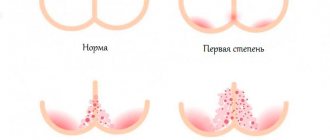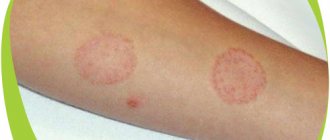Is fish allowed during pregnancy? This question causes a lot of discussion, both among home-grown experts and among professionals. Even when studying official information, it is difficult to come to a clear conclusion.
Some sources claim that a diet for pregnant women without fish will not be complete and will not provide the expectant mother and baby with a complex of nutrients. Others say that this product is strictly prohibited. We can immediately say that smoked fish is prohibited during pregnancy, but let’s figure out the rest.
Fish is a protein, a complex of vitamins and minerals. It is absorbed by the body much better than meat. After a fish dinner, you are unlikely to feel heaviness in your stomach. But not all types of fish are good for a pregnant woman: follow the recommendations given in this article and be safe.
The benefits of fish
During the period of bearing a child, the body needs an increased complex of vitamins and minerals. Fish contains phosphorus, magnesium, vitamin A, and calcium. And sea fish is also supplemented with fluoride, vitamin D and iodine. All these substances play a significant role in the development of the child.
The main difference between marine fish and freshwater fish is the large amount of omega-3. This is a polyunsaturated fatty acid, the consumption of which has a positive effect not only on the health of skin, hair and nails. Omega-3s must be present in the menu of a pregnant woman, as they have a beneficial effect on the development of the brain of the unborn child.
Marine fish, which are bred in artificial conditions, contain more omega-6, but the inhabitants of natural reservoirs are rich in omega-3.
This is due to the fact that under natural conditions, fish feed on small marine organisms, which, in turn, feed on algae. The fatty acid combines with algae and in this way more omega-3 is formed. Our body cannot produce omega elements on its own, so we need to get it from food.
Scientists have proven that polyunsaturated fat compounds are important for the proper development of the fetal central nervous system. Most of the omega-3 is made up of two acids EPA (eicosapentaenoic acid) and DHA (docosahexaenoic acid).
DHA begins to accumulate in the baby’s brain cells from week 26 and affects the proper functioning of neurons. A deficiency of this acid in the embryo leads to delayed brain development.
A study by scientists from the USA showed that in babies whose mothers ate about 400 grams of fish per week during pregnancy, the development of the psychomotor system occurred in a timely manner.
Omega-3 also affects a baby's vision. A deficiency of these acids is dangerous in case of premature birth, as there is a risk of developing respiratory failure.
Due to the important role of omega-3 on the development of a child, it is important to include 300 grams of sea fish per week in a pregnant woman’s diet.
Most EPA and DHA contains:
- herring,
- sardine,
- mackerel,
- salmon.
What pregnant women should not eat
It is recommended to eat only low-fat fish, as heavy metals accumulate in fat. Raw fish is dangerous for a pregnant woman because it can be infected with parasites. Wild fish may contain mercury, so consumption of marine fish is recommended to be avoided or limited as much as possible. High levels of mercury can negatively affect the development of the brain and nervous system of the fetus.
For most people, mercury accumulation from seafood consumption does not pose a threat, but doctors recommend that pregnant women avoid consuming certain types of fish. These include:
- king mackerel;
- marlin;
- hoplostet;
- bigeye tuna;
- other types of fish (Gulf of Mexico).
Instead of eating raw, smoked or semi-cooked seafood (sushi, shrimp, shellfish, crabmeat, seaweed), it is better to choose fully cooked seafood.
What kind of fish can pregnant women eat?
The top list of the healthiest fish for pregnant women looks like this:
- red fish;
- sardine;
- mackerel;
- herring;
- flounder;
- cod.
Fish dishes are best steamed or baked in the oven. This way you will preserve everything useful and will not gain extra calories and carcinogenic substances released during frying.
You can make soup from high-quality canned food.
The fish that should be in your diet during pregnancy are fatty fish, except for perch and tuna.
Or at least limit their use. Tuna is a delicious fatty fish, but it accumulates mercury, so a maximum of two tuna steaks per week weighing 150 grams.
Canned tuna is not considered fatty, due to the canning process.
Restrictions on fatty fish were introduced due to the polluted environment (dioxins, pesticides and other harmful substances may be contained in fish). But two servings a week will not cause harm and will be able to provide both mother and baby with useful minerals and vitamins without harm.
Forbidden fish
Prohibited products include predatory fish species. Due to severe environmental pollution, harmful substances, heavy metals and toxins accumulate in their bodies, and it is natural that after consuming such a delicacy, the entire spectrum of negative elements reaches a person and causes numerous disorders.
The following fish should not be consumed during pregnancy: tuna, shark, halibut and others.
Toxic substances gradually accumulate in fats and therefore, when carrying a child, especially in the early stages, you need to choose low-fat types of fish; cod liver is recommended.
Important! Fish that has not been heat-treated is potentially dangerous. This especially applies to river species (perch, bream, crucian carp and others). They may contain parasites. You can even become infected if you eat canned fish with helminths.
Fish for iodine deficiency and thyroid diseases
You should not get carried away with fish dishes if you have problems with the thyroid gland. Decreased thyroid function is a common problem in pregnant women; in this case, the body needs an additional portion of iodine.
Where can you get it, other than in fish? The source of iodine is seaweed, shellfish (scallops, squid, mussels). But eating shellfish during pregnancy also requires caution: no dried or canned shellfish - only thermally processed seafood is safe for expectant mothers.
And if the thyroid gland begins to secrete excess hormones, additional iodine is contraindicated. If you suspect a malfunction of the thyroid gland, it is important to be examined by a doctor and take a hormone test.
Sea or river - which one to choose?
Iodine can be obtained from sea fish. Usually, pregnant women have a deficiency of this microelement, and if possible, it is necessary to purchase marine varieties: sardines, flounder, pollock, and herrings. If there is an excess of iodine in the body, it is advisable to give preference to river varieties of fish.
The diet of the expectant mother may include seafood: crabs, lobsters, shrimp, seaweed. It is recommended to eat them boiled. It is better not to use canned food, since seafood marinades often contain components harmful to fetal development. You should buy fish and seafood from trusted places to avoid health problems.
River fish for pregnant women
Freshwater fish from rivers and lakes is less fatty than sea fish. And this is a minus, because the absence of healthy fats will not make any contribution to the health of the expectant mother and her child.
In addition, river fish are often infested with parasites that are difficult to destroy even with the help of heat treatment.
Helminthiasis during pregnancy can not only cause vomiting, but also miscarriage. Raw fish during pregnancy also puts a person’s health and sometimes life at risk.
The benefits of red fish during pregnancy
Red fish is an extremely healthy product. It contains:
- B vitamins - participate in metabolism, prevent the formation of blood clots, improve the condition of the nervous system, normalize heart rate, stimulate adrenal function.
- Vitamin A - strengthens the immune system, stimulates collagen production, neutralizes free radicals, prevents stretch marks on the skin, is important for the formation and growth of the embryo.
- Vitamin D – regulates the synthesis of hCG, prevents gestosis, preeclampsia, gestational diabetes mellitus.
- Phosphorus – ensures normal kidney function and participates in the contraction of the heart muscle.
- Calcium - lowers cholesterol, improves liver function, strengthens the walls of blood vessels, participates in the contractile function of the heart muscle, and reduces blood pressure.
- Magnesium – activates metabolism, helps the body cope with stress.
- Fluoride – prevents atherosclerosis, reduces the risk of cardiovascular diseases, affects the formation of teeth.
- Zinc – participates in protein synthesis and insulin formation, maintains acid-base balance in the body.
- Selenium is an antioxidant and protects against malignant tumors.
- Iodine – regulates the function of the thyroid gland.
- Omega-3 – has an anti-inflammatory and antioxidant effect, participates in the formation of the endocrine and nervous systems of the fetus, and prevents gestosis.
Fish is a product with easily digestible protein, which is quickly digested and perfectly absorbed by the body. It gives a feeling of heaviness, is low in calories, but at the same time filling, which is why fish is included in most healthy nutrition programs.
Important: if a woman rarely ate this product before pregnancy, a pregnant woman should start consuming it with a very small amount.
Red fish during early pregnancy
Fresh red fish in the early stages of pregnancy is a healthy product that should be included in your menu. There are very few restrictions here - the presence of an allergic reaction to the product and disturbances in the gastrointestinal tract.
An important condition is that the fish must be of good quality and undergo heat treatment. Although river fish (such as river trout) contain parasites to a greater extent, redfish are not immune to them and must be cooked carefully. You can become infected with parasites not only through undercooked fish, but also by tasting Japanese cuisine - sushi, rolls, or by trying salted or smoked fish.
The healthiest red fish is the one that is steamed or baked in foil. Fried fish increases the load on the digestive organs and can provoke attacks of gastritis or pancreatitis. The duration of cooking fish is calculated based on the formula - for every 2.5 cm of fillet in thickness, 10 minutes are allotted.
Harm of red fish during pregnancy
Red fish can be harmful during pregnancy under the following circumstances:
- Having an allergy to fish
- Chronic liver or stomach diseases
- Poor product quality
- Improper preparation of fish, use of salted and smoked versions
Canned fish is not a very healthy product. Firstly, it contains a lot of salt, secondly, fatty oil, and thirdly, the quality of canned fish is difficult to determine. In addition, the vast majority of canned food is stuffed with preservatives and flavorings, which are extremely undesirable while expecting a baby.
Red lightly salted fish during pregnancy
Red fish is best consumed baked or steamed. Consumption of salted red fish during pregnancy can occur if the quantity is small, the fish is of good quality and the pregnant woman does not suffer from edema, excess weight and other conditions in which salt is limited.
Important! It is difficult to determine the freshness and quality of salted fish at a glance, so be vigilant.
You should not eat lightly salted fish if:
- It was purchased on the market;
- It is poorly salted;
- Causes even minor allergies;
- It is difficult to determine its shelf life.
Even if there is no doubt about the quality of the fish, you can eat it carefully, in measured quantities (1-2 pieces). The reason is a large amount of salt, which can cause fluid retention in the body, swelling and excess weight gain. This is especially true for expectant mothers after the beginning of the second half of pregnancy.
Tips for choosing red fish
- Pay attention to the color of the fillet - it should not be too bright and uniform. Real fish have pink fillets with white streaks. If the fish has already been purchased, place a piece of fillet on the oil - if the oil becomes colored, the fish should not be eaten.
- Examine the fins - their absence or unnaturally small size indicates artificial cultivation of the fish, in which the fish are fed with growth stimulants. Real red fish are pale in color with long fins.
- The fishy smell should be present, but not strong.
- The fish should not have mucus on it, its scales should shine.
- The eyes of the fish should be bright and light. Sunken eyes are evidence of an outdated product.
- When pressed, a fresh carcass regains its shape; there should be no holes left.
Fish recipes for pregnant women
The main requirement for pregnant women to consume fish is sufficient heat treatment and selection of the “right” varieties of product. Choosing good, healthy fish is your task, and the Its Kids team can provide you, dear readers, with simple but original recipes for fish dishes.
Sardine soup
Ingredients:
- canned sardine - 1 can;
- potatoes - 4 pieces;
- carrots – 1 piece;
- onion;
- salt - to taste.
Preparation:
- We clean the vegetables, cut the potatoes into convenient medium-sized pieces, and carrots into cubes.
- We put a pan of water on the fire and throw the vegetables into cold water; when the water boils, salt it.
- After cooking the vegetables for 15 minutes, add the whole onion to the pan. Pour the contents of the can into the pan and cook for another 10 minutes.
- Serve the finished soup hot with white bread.
Baked hake with vegetables
Ingredients:
- hake carcasses – 4 pieces;
- carrots – 2 pieces;
- tomato – 2 pieces;
- zucchini - 1 piece;
- salt, herbs, lemon juice - to taste.
Preparation:
- Defrost the hake carcasses and rinse under running water. Then dry with a paper towel. Next, you need to wipe the fish with lemon juice, herbs and salt. Leave for 15 minutes.
- At this time, we will take care of the vegetables, they need to be washed and the carrots peeled. Cut the carrots in half lengthwise, cut the zucchini and tomatoes into large pieces.
- Place the fish and vegetables on a baking sheet; add a little salt to the vegetables. Bake in the oven at 180 degrees for 25-30 minutes.
Composition and calorie content of fish
Chum salmon with many vitamins, microelements and easily digestible protein is considered a source of fatty acids such as Omega-3 and Omega-6. As a percentage, fish contains about 74% water, 19% proteins, and the remaining 7% are fats and ash.
Most of the trace elements are potassium, phosphorus, calcium, sodium, magnesium, selenium, manganese, fluorine, iron, zinc, iodine and copper. From vitamins A, E, B1, B2, B3, B5, B6, B9, B12, PP. Carbohydrate-free, low-calorie fillet is valued for its beneficial substances and low mass fraction of fat - 4-5 g per 100 g.
Calorie content of 100 g of fresh fish is 126.8 kcal, salted - 184.3 kcal, smoked - 196 kcal, fried - 386 kcal.
conclusions
To get the maximum benefit from fish that live in not very clean aquatic environments, follow simple rules:
- Don't eat more than 400 grams of fish per week.
- Remember which types are prohibited during pregnancy.
- Don't forget about the benefits of omega-3 for your baby.
Dear readers, we hope that our article was informative for you and you made a conclusion for yourself which fish is best to eat during pregnancy . We are waiting for your comments about the benefits or harms of the product and your signature recipes.
Not all fish is equally healthy: what should you avoid?
Despite the obvious benefits, some foods must be excluded from the diet during pregnancy. These include all dishes based on raw fish: tartare, sashimi, sushi, ceviche. They can cause severe food poisoning, provoke infection with helminths or deadly listerella.
Pregnant women should not eat salted and smoked delicacies, canned fish, or caviar. These products contain too much salt, preservatives and carcinogens, they contribute to fluid retention in the body and increase swelling.
The list of prohibited foods during pregnancy includes all types of river fish. They can be infected with flat or round worms, and most freshwater fish actively accumulate harmful substances, which are found in abundance in water bodies. Seafood is also prohibited. They contain heavy metals, which are especially dangerous for the body of a pregnant woman. From time to time you can indulge in boiled shrimp, squid or scallops, but mussels, oysters and other types of shellfish should be excluded from a pregnant woman’s diet.
Some types of marine fish are also dangerous. Long-lived large individuals can become a source of mercury, cadmium, and other heavy metals. They are not dangerous in small quantities, but pregnant women are especially sensitive to potentially dangerous substances, so it is not worth the risk. Expectant mothers should avoid tuna, shark, swordfish, blue marlin, king mackerel, and halibut.
Although polyunsaturated fatty acids are beneficial for a pregnant woman’s body, you should not overuse fats. Products such as cod liver or pollock are temporarily excluded from the diet.
What can replace fish?
Fish is a must-have product for a balanced diet for an expectant mother. But what to do if a woman is allergic, or the smell and taste of fish suddenly becomes repulsive during pregnancy? Fish and seafood can be replaced with special preparations containing Omega-3 and Omega-6 acids. At the same time, the choice of nutritional supplement, course duration and dosage are always within the competence of the doctor observing the pregnancy.
You can also diversify your diet with seaweed. It, like fish, contains: iodine, phosphorus, magnesium, calcium, sodium, folic acid, vitamins A, B, C, D, E and group B. Not a single vegetable or fruit can boast of such a composition. It is best to purchase fresh, dried or frozen kelp, since ready-made pickled cabbage contains too much vinegar and salt.
Thus, fish and seafood are an important part of the expectant mother’s diet. They ensure the normal development of the child, and give the woman herself strength and good mood for all 9 months of pregnancy.
Especially for beremennost.net – Elena Kichak










